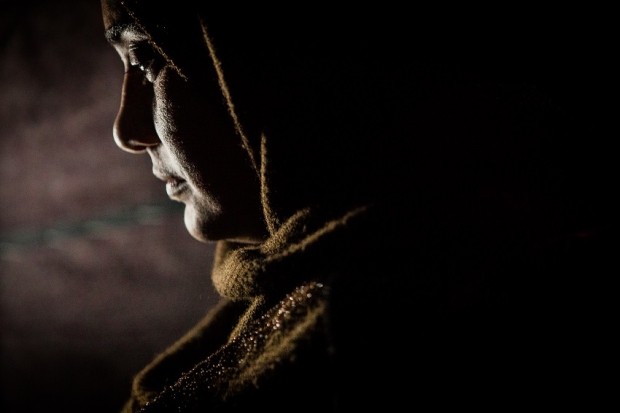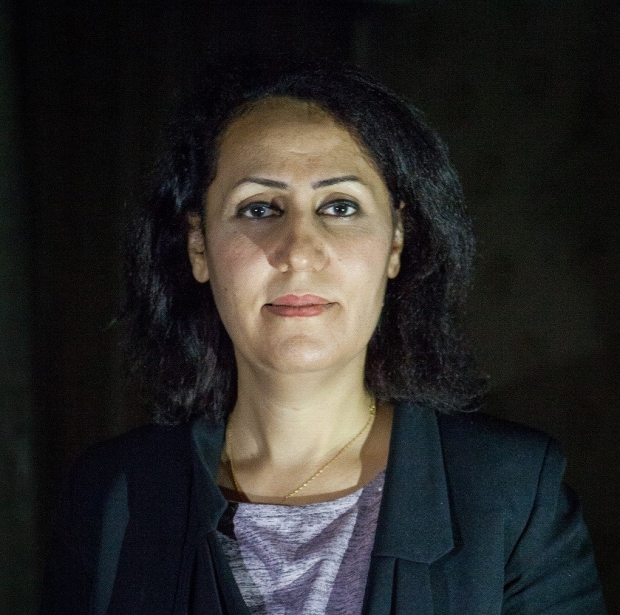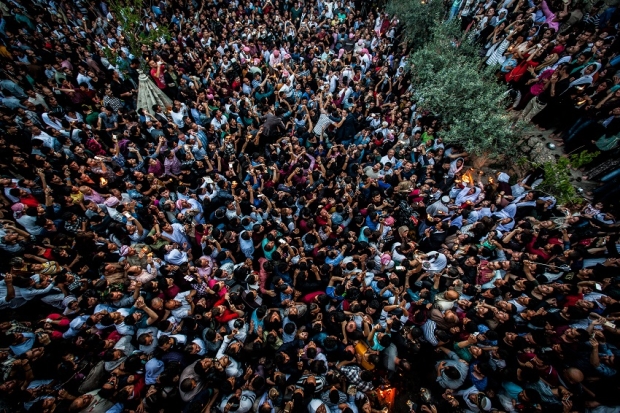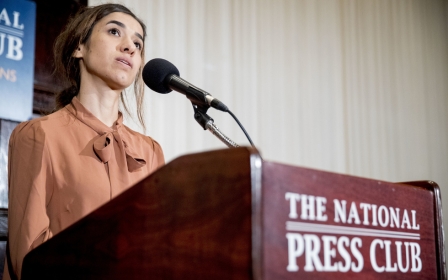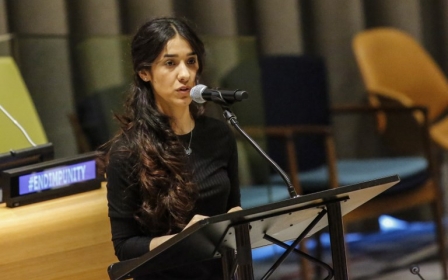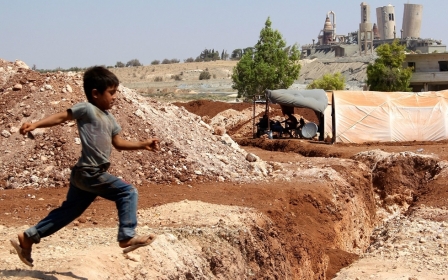This doctor is giving life back to female Yazidi victims of Islamic State
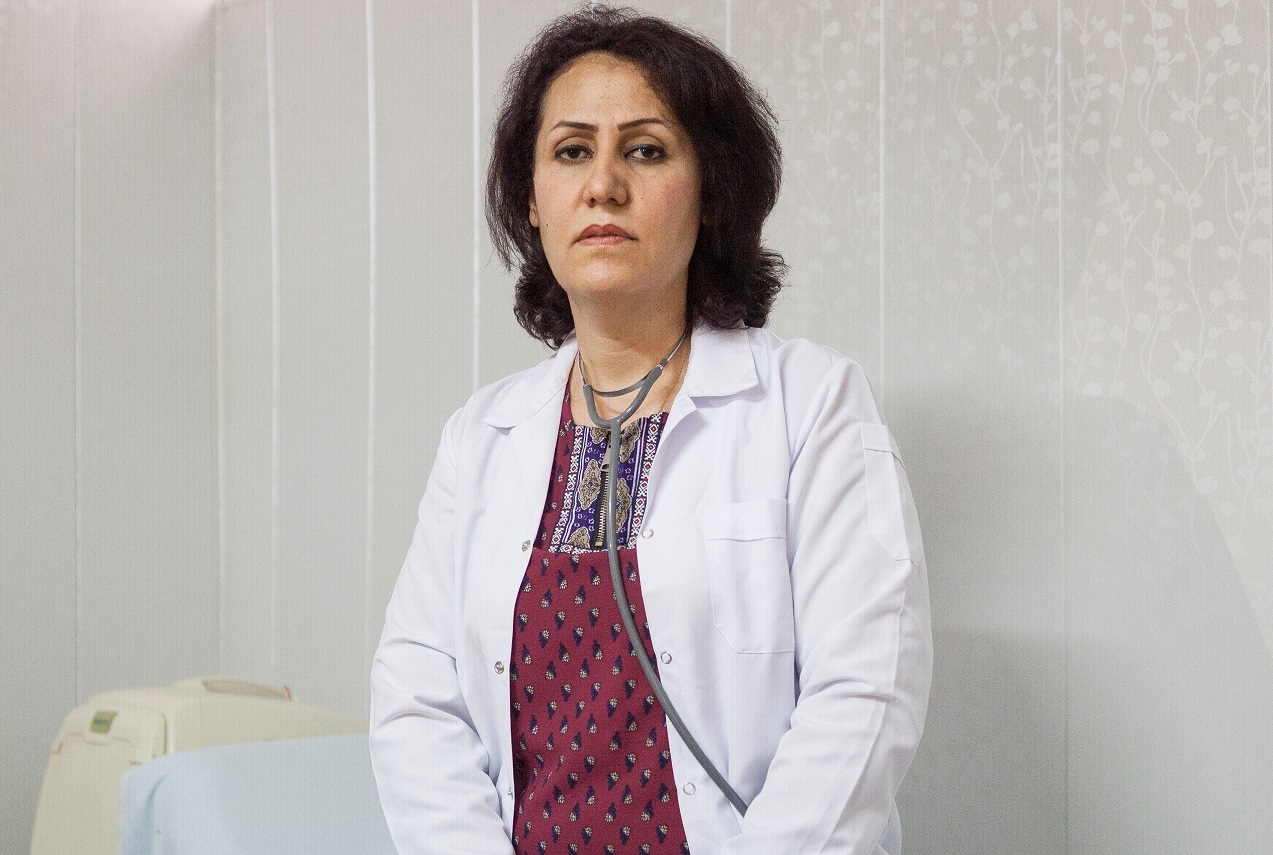
DUHOK, Iraq – Shireen was studying for a high school examination at her home in the northern Iraqi town of Sinjar on 3 August 2014, when Islamic State group (IS) militants broke into her house and kidnapped her from her family.
At the age of 19, she was sold as a sex slave to an IS militant in the north-western city of Tal Afar. Three months later, Shireen was sold once again to Abu Omar, another IS fighter in Mosul, to become his third wife.
"He said 'I love you,' but when you love someone, you don't rape her. It destroyed my life," Shireen tells MEE. "Abu Omar already had two Iraqi wives."
Although Abu Omar's other wives lived in a separate house, Shireen says that they used to beat her whenever they got together.
Shireen's story is just one from the thousands of stories recounted by Yazidi women who have experienced the raw cruelty of IS.
Yazidis believe in Yasdan, a god who emanates seven angels . The angel they revere above all others is Melek Tawwus or the Peacock Angel - but Shireen was told by IS that Melek Tawwus was the devil and so was forced to convert to Islam.
'He said 'I love you,' but when you love someone, you don't rape her. It destroyed my life'
- Shireen, IS survivor
For more than two years, Shireen says, she was not allowed to leave the house in Mosul. She was forced to cook, wash the dishes and clean every day.
"There were two guards at the entrance of the house, and I was not allowed to go outside, [or] even to the garden to breathe fresh air," she says.
According to Shireen, Abu Omar later brought two other Yazidi girls to the house. One was six years old and was forced to clean the house, while the other was 10. She was raped frequently by Abu Omar: Shireen says she tried to stop him, but her pleas fell on deaf ears.
In 2016, Shireen was released by Iraqi forces during the campaign to retake Mosul from IS.
After more than two years of captivity, Shireen suffered from depression and constant nightmares that prevented her from sleeping. Her uncle and many of her friends were killed by IS, while her father and one of her sisters have been missing since 2014, after they were also taken.
'It's too horrible, the skeletons of my uncle and my friends are under the ground'
- Shireen, IS survivor
"It's too horrible, the skeletons of my uncle and my friends are under the ground."
Upon her release, she visited Dr Nagham Nawzat, a Yazidi gynaecologist in the city of Duhok, in Iraq's Kurdish region, for a check-up. But Nawzat not only gave her a physical examination - she also listened to Shireen and offered her emotional support.
"Dr Nawzat helped all of us. Without her help, I wouldn't be here today," the 23-year-old says. "After I came back from captivity, Dr Nawzat sat down with me and told me that I was brave. I love her so much."
A doctor devoted to survivors
Nawzat is highly respected among the Yazidi community. According to Hussein al-Qaidi, the director of the Kidnapped Affairs department at the Kurdistan Regional Government (KRG) in Duhok, 2,023 Yazidi women have been liberated from IS territories as of July 2018.
Nawzat, 42, has provided life-saving support to more than half of them, helping an estimated 1,200 Yazidi women, according to al-Qaidi.
In March 2016, Nawzat received the International Women of Courage Award from then-US Secretary of State John Kerry for providing psychological support to traumatised Yazidi survivors and for combating gender-based violence.
Born in Mosul to a Yazidi family in 1976, her life-long dream was to study medicine. Concerned about women's issues from an early age, she graduated with a degree in gynaecology from Mosul's Medical College in 2002.
"[I wanted] to better understand issues related to women's health, teach women about health care and provide support for them," she tells MEE.
'After I came back from captivity, Dr Nawzat sat down with me and told me that I was brave'
- Shireen, IS survivor
In 2014, IS seized almost a third of Iraq. At least 12,000 Yazidis were killed or kidnapped as part of what the United Nations describes as an "ongoing genocide" against the religious minority.
The following year, Nawzat decided to Join the Duhok Survivors' Centre, where she volunteers to provide healthcare and psychological support for Iraqi women who survived IS. Funded by the United Nations Population Fund (UNFPA), it's the only facility in Iraq that specialises in gender-based violence.
Rebuilding a community
The women who survived IS often have horrific stories to share. Nawzat therefore uses a post-traumatic medical approach commonly found in Iraq.
Afterwards, she conducts a thorough physical check-up and then listens attentively as her patients talk about their fears and their traumatising experiences. Nawzat offers them support and positive reinforcement "like a big sister the survivors can confide in," she says.
According to Nawzat, as she creates a relationship with her patients based on mutual trust so they confide in her and reveal their deepest emotions and fears with ease. She is happy to meet her patients again whenever they request psychological support.
In severe cases where women suffer from depression, post-traumatic stress disorder or there is a suicide risk, they are referred to the nearby psychiatric department of Duhok's Azadi hospital for treatment.
But her work is not without its risks to her own safety: because of her engagement with Yazidi community survivors, Nawzat says that she receives frequent death threats from IS sympathisers via the phone or social networks.
Yazidis still in captivity
Although Iraqi forces declared final victory over IS in December 2017, 1,500 Yazidi women still remain captive in Iraq, Syria and Turkey, according to al-Qaidi.
Today, Sinjar is still in ruins and memories of IS brutality still weigh heavily on its people.
Shireen lives alone in a tent at the Khanke Internally Displaced Population camp in Dhokok. She rejects the idea of returning to Sinjar, as most of her family members managed to obtain asylum in Germany.
In 2014, Khurto Hajji Ismail, the supreme leader of the Yazidis who is known as Baba Sheikh, declared that Yazidi women who had been enslaved by IS were welcome back to the Yazidi community, an announcement that helped facilitate Nawzat's daily work and ease the women's reintegration back into the community.
According to al-Qaidi, four years on Yazidi survivors are still being released by IS in exchange for ransom.
For her part, Nawzat says she will continue her mission to be there for other Yazidi women and help heal their wounds.
"I dedicate my life to the Yazidis," she says.
Middle East Eye propose une couverture et une analyse indépendantes et incomparables du Moyen-Orient, de l’Afrique du Nord et d’autres régions du monde. Pour en savoir plus sur la reprise de ce contenu et les frais qui s’appliquent, veuillez remplir ce formulaire [en anglais]. Pour en savoir plus sur MEE, cliquez ici [en anglais].


